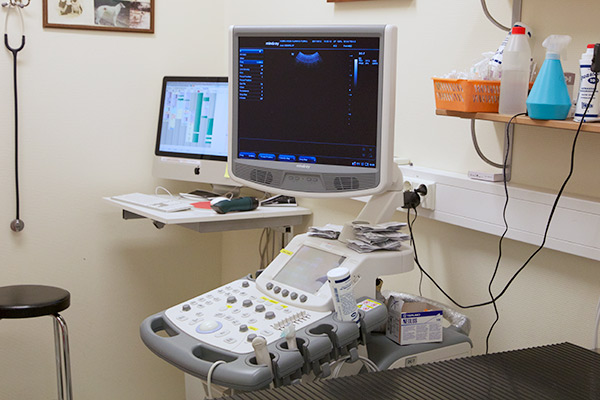Avoinna arkisin ma-to 8-20, pe 8-19.
La päivystys ajanvarauksella klo 9-17.
Ultrasound investigation is increasingly used to diagnose chest and stomach illnesses. Ultrasound investigation is most commonly used to examine the uterus, bladder and kidneys. Ultrasound is also very well applicable to diagnose illnesses of the spleen, liver and the intestine. At our clinic we also do PKD (polycystic kidney disease) investigations on cats. Heart ultrasound investigations are a very important procedure to help diagnose heart disease in cats and dogs. Ultrasound is often used to determine if a dog is pregnant.

Ultrasound examinations can further clarify findings which came to light in an X-ray. Accumulation of fluid in the thoracic and abdominal cavities can be quickly detected with an ultrasound examination. Ultrasound is used as an aid when using FNA (fine needle aspiration) to get samples of mutated tissue or of fluids accumulated in the thoracic and abdominal cavities. The ultrasound machine is a very important support device when removing fluid from the pericardium.
The ultrasound examination is painless and safe. Normally the animal is not sedated for this examination. Sometimes hair is removed from the area to be examined and it is wetted to improve contact.
For the bladder examination the animal has to be kept from urinating for at least 6 hours. Other special measures are usually not necessary. For the abdominal examination it would be good if the animal does not eat, so that the contents of the abdominal cavity and the intestine do not bother the examination. You will receive specific instructions from the clinic before coming to the examination.